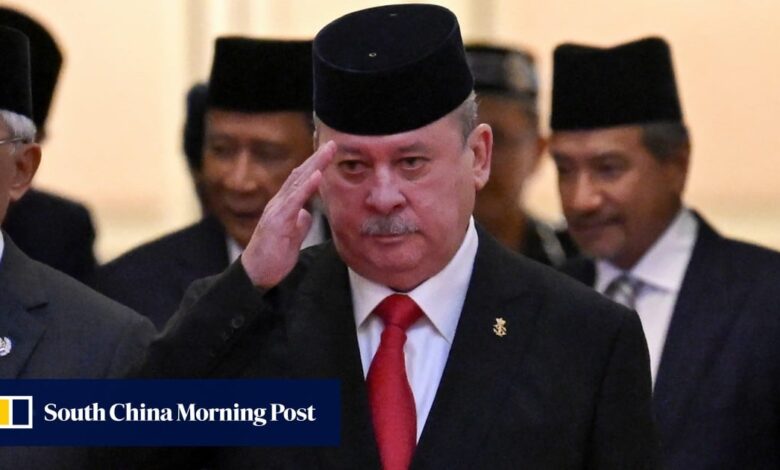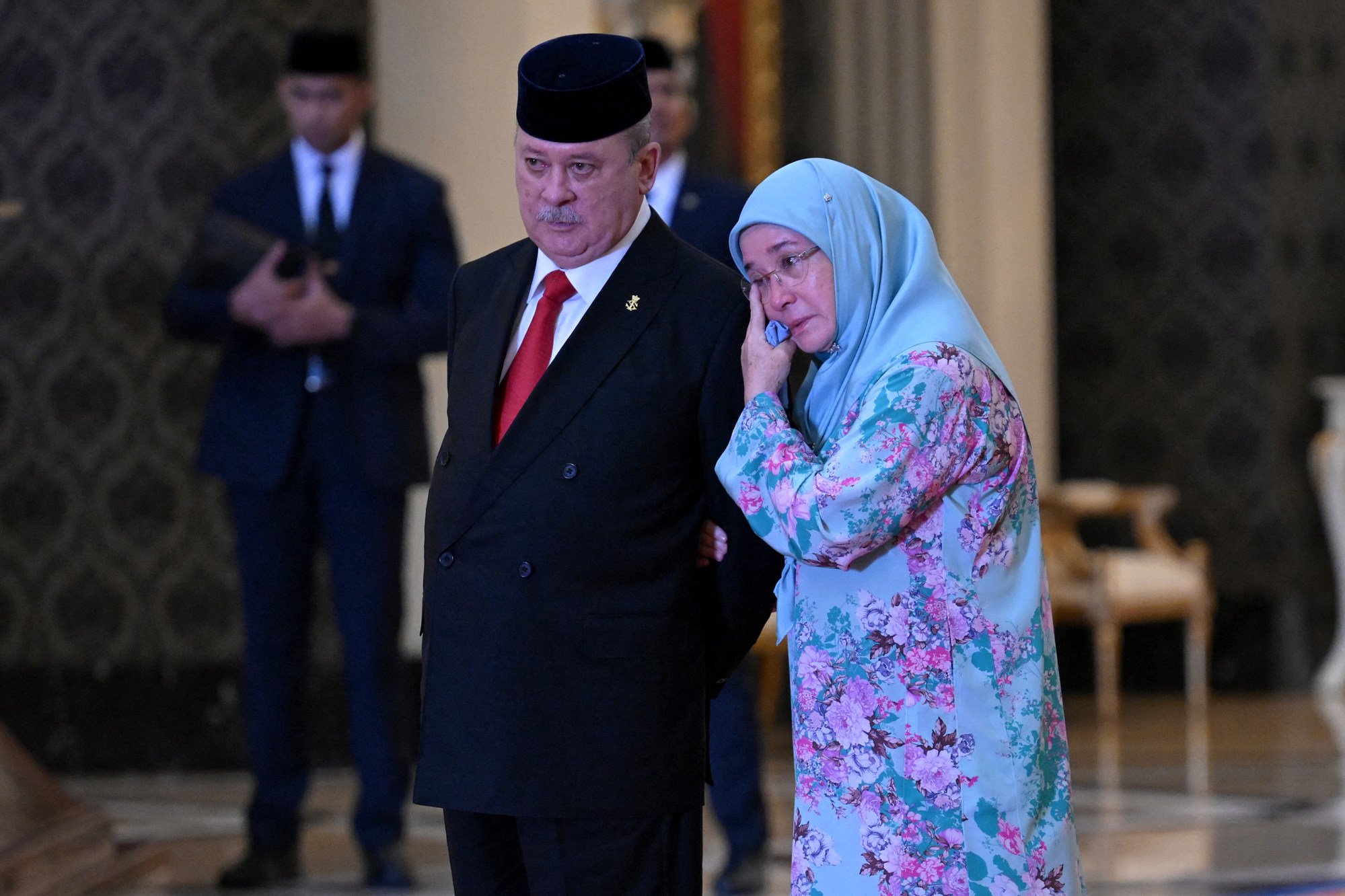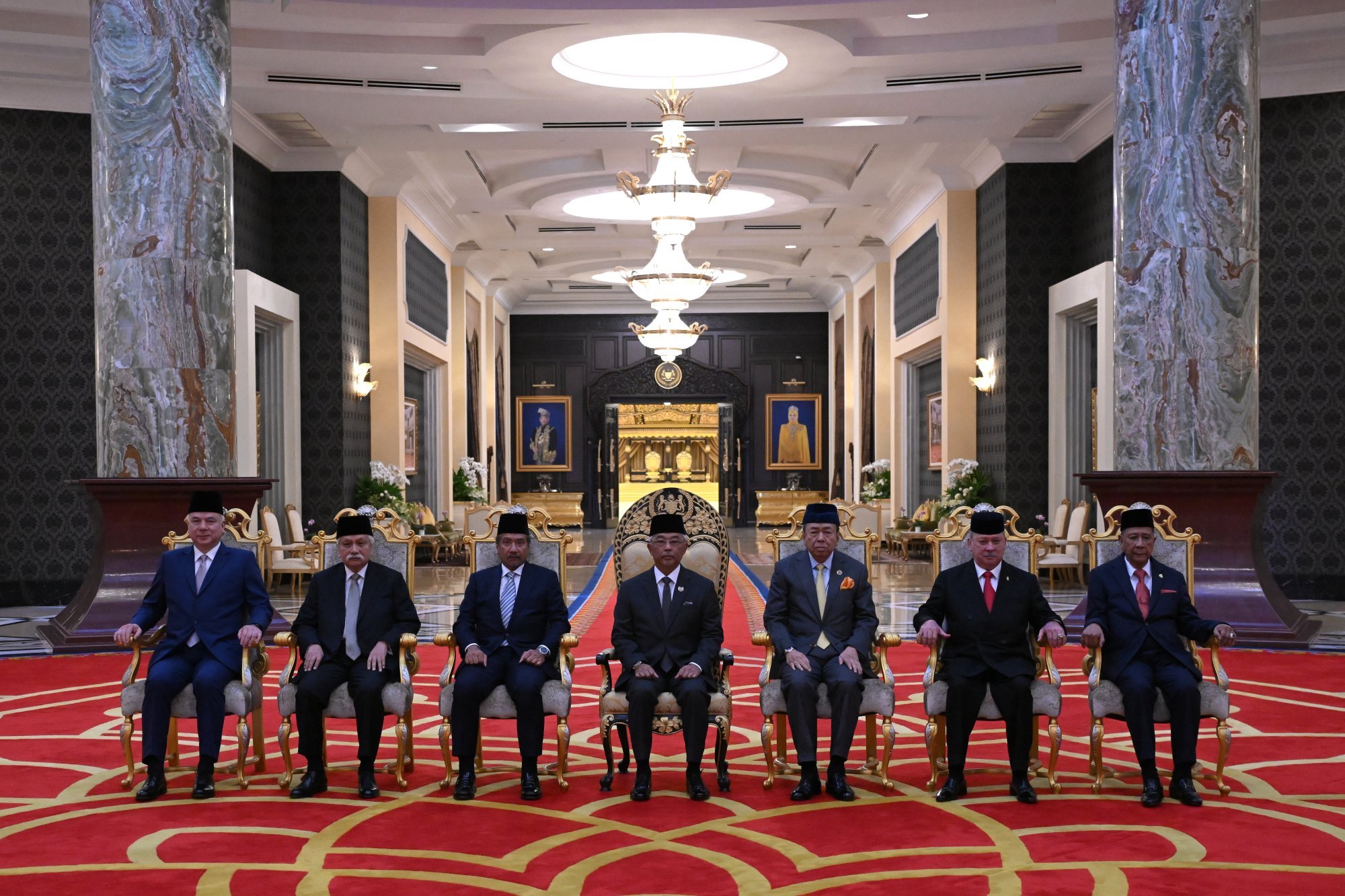Malaysia’s next king Sultan Ibrahim set to give PM Anwar ‘a tough time’ with his ‘hands-on’ approach

“[The chief minister would] come in for an audience, brief [the Sultan] where his majesty would then give his honest opinion,” said Tunku Ismail on how the government operates in Johor. “The prime minister is going to have a tough time.”
Sultan Ibrahim picked as Malaysia’s next king, hails incumbent’s unifying role
Sultan Ibrahim picked as Malaysia’s next king, hails incumbent’s unifying role
Sultan Ibrahim will be the second sultan of Johor to be appointed Yang di Pertuan Agong. His father Sultan Iskandar served in that position from 1984 to 1989.
His great-grandfather, the previous Sultan Ibrahim, declined the offer to be Malaysia’s first king in 1957 despite being the most senior monarch at the time.
The current Sultan Ibrahim ascended to the Johor throne in 2010, following the passing of his father, who reigned for 29 years.

“Anwar only came to realise the government’s financial difficulties after taking office,” he said in an exclusive interview with local newspaper Sin Chew Daily.
Malaysia’s Johor royals linked to unapproved forest felling for plantations
Malaysia’s Johor royals linked to unapproved forest felling for plantations
With a controlling stake in the Malaysian side of the venture, Forest City is effectively a joint venture between Country Garden and the Johor monarch, the newspaper reported.
Malaysia lures Singapore’s expats as Chinese-built Forest City homes ‘sit empty’
Malaysia lures Singapore’s expats as Chinese-built Forest City homes ‘sit empty’
The sultan, however, was not coy about his business dealings, and instead defended himself in the newspapers, saying he had to “earn [his] living like everyone else”.
“I cannot depend on my allowances of 27,000 ringgit (US$5,660) a month. I must earn a living, like ordinary Malaysians,” Sultan Ibrahim told The Star in 2015.
Telling the newspaper that Johor monarchs before him had always been involved in business, he said he did not believe that he should stop his investment activities.
“Don’t tell me that once I become the sultan, I have to stop everything,” he reportedly said.
In 2017, he again defended the Forest City project, saying it benefits the state government through the collection of taxes and the creation of jobs. “Don’t be short-sighted,” he told local newspaper Berita Harian.
Malaysia’s Johor sultan lends support for an economic zone with Singapore
Malaysia’s Johor sultan lends support for an economic zone with Singapore
Speaking to This Week in Asia, lawyer and political activist Rafique Rasyid said the Johor monarch should divest all his commercial interests after he ascends the throne, as the constitution clearly bars the king from actively engaging in commercial enterprises.
Article 34 of the constitution also bars a sitting monarch from holding any appointments carrying “any remuneration”, which Rafique argues extends to stock dividends. “The law is clear on this,” he said.
Aside from real estate projects, Sultan Ibrahim reportedly owns shares in the 7-Eleven convenience store chain and Redtone, an internet service provider.
Sultan Ibrahim is one of the more active rulers when it comes to business. But a king is expected to be a king
The king’s close rapport with the executive branch, which included weekly audiences with current and previous prime ministers ahead of the cabinet meetings, had opened up avenues for a conflict of interest, said Rafique, who noted the Johor crown prince’s comment on his father’s “hands-on” approach.
“Sultan Ibrahim is one of the more active rulers when it comes to business,” Rafique added. “But a king is expected to be a king.”
In his purely ceremonial position, the king is bound to only act on the advice of the prime minister as stipulated by the constitution.
Mahathir also launched a media campaign against the royals, disclosing their extravagant lifestyle, abuses and improprieties.
How Chinese investment could sway Malaysian election
How Chinese investment could sway Malaysian election
Constitutional expert Shad Saleem Faruqi, however, wrote in an academic report that since the saga, the monarchy had exerted far greater influence in the legal, political and administrative domains. This arose as Malaysians appeared to have lost confidence in their political leadership, which had declined in quality since 2020, according to Shad.
In a clear sign of the monarchy’s clout, following the defeat of the historically dominant Barisan Nasional coalition in the 2018 election, the then-king, Sultan Muhammad V of Kelantan, made Mahathir wait for nearly a day before swearing him in as prime minister.
Sultan Muhammad V also weighed in on who should be prime minister, despite the winning coalition already settling on Mahathir as its candidate.

“Many welcome this royal activism and see it as a check and balance on an uncontrolled government,” Shad said in the report published by ISEAS–Yusof Ishak Institute. “Others fear that this may tempt an overreach by a future monarch.”
By following Sultan Abdullah’s easygoing approach, Sultan Ibrahim’s disregard for royal protocol could prove to be popular with the Malaysian public.
“This people-friendly approach of Sultan Abdullah will be continued by Sultan Ibrahim, and will be enhanced, befitting his personal style,” said sociologist Awang Azman Awang Pawi.
This includes his yearly statewide tour, usually on the back of one of the motorbikes or in one of the luxury cars in his collection, which allows the monarch to be up close and personal with his subjects.
Speaking on the podcast, Johor Crown Prince Tunku Ismail said past episodes of political instability had prompted his father to embark on an “agenda” to “restore order” and stability.
“It will be an interesting time,” the prince said with a smile.


 Free spins for beginners
Free spins for beginners